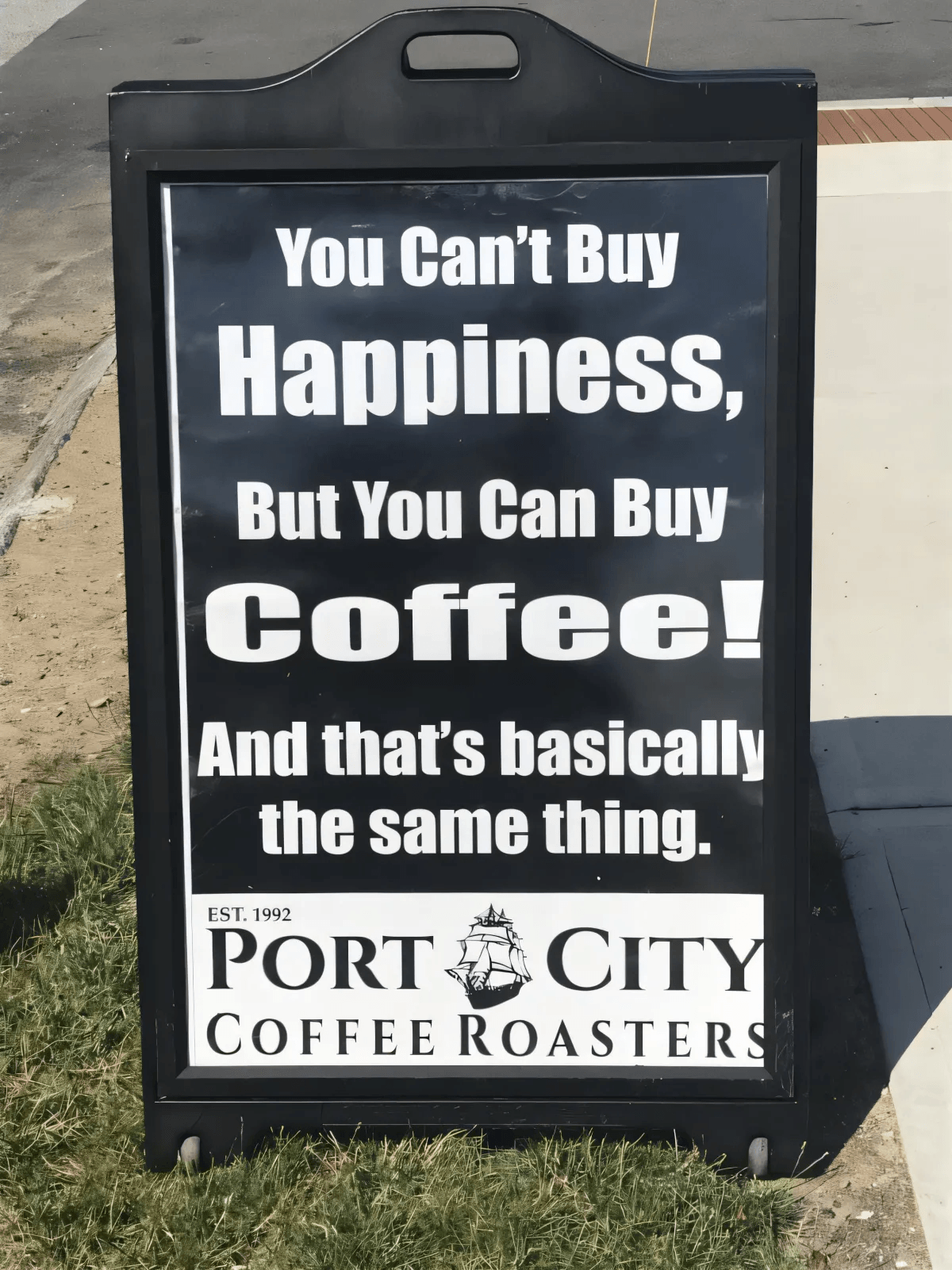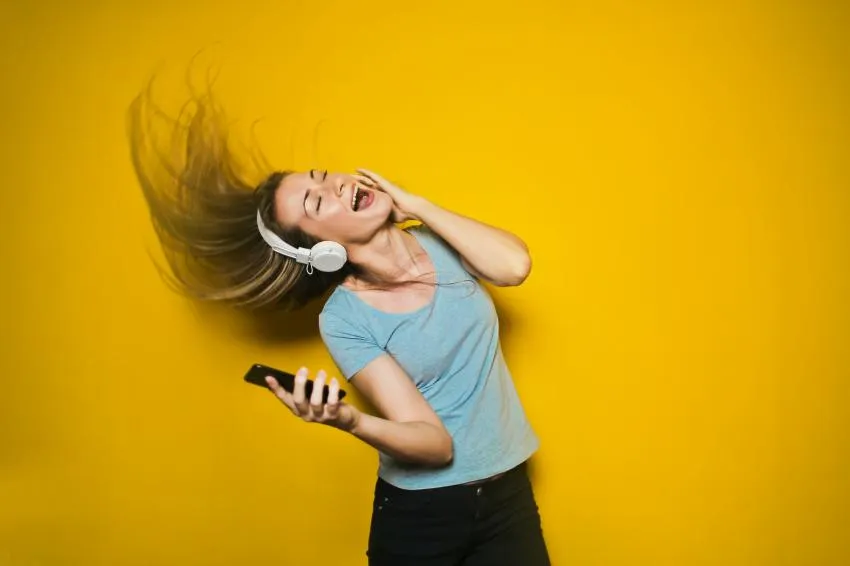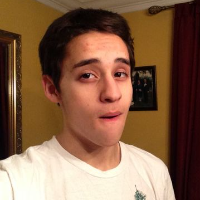How Caffeine Consumption Can Affect Your Enjoyment Of Music

Caffeine remains the world's most widely consumed psychoactive drug. A stimulant, it increases neuronal activity in the central nervous system, and can temporarily elevate alertness, mood, and awareness. It is most commonly found in coffee beans, tea leaves, energy drinks, soft drinks, and chocolate, and also appears in some prescription and non-prescription drugs.
Considering its widespread popularity and usage, it is likely that our interactions with caffeine will intersect at some point with other chemically induced experiences in our lives. One that immediately comes to my mind is the dopamine rush we receive from listening to a great song. Music appreciation is universal, and it's not hard to imagine that most people would enjoy sipping a cup of coffee while humming to the radio on their way to work.
But does caffeine improve the experience? Or does it take something away from our ability to appreciate a song? This article will explore the effects of caffeine consumption on our ability to listen to and enjoy the music we love.
The Effects of Caffeine Immediately after Ingestion
The effects of caffeine may begin as early as fifteen minutes after consumption, and peak within thirty to sixty. It is during this time that you are most likely to experience the “jittery” effects of caffeine. Being a mild diuretic, you might also urinate more frequently. If you possess a caffeine sensitivity, you might feel these and other symptoms for several hours or even days after consumption.
For most, however, caffeine possesses a half-life of five hours, so it is recommended that users abstain from caffeine consumption for at least six hours before bedtime. Being a stimulant, caffeine reduces fatigue and drowsiness, and at normal doses improves reaction time, wakefulness, concentration, and motor coordination.
Still, there are downsides, as caffeine consumption can lead to mild anxiety, jitteriness, and insomnia, and at high doses often produces headaches and muscle tremors. Consuming too much daily caffeine on a regular basis has in fact been linked to increased episodes of heartburn and changes in bowel habits, and at five to ten grams it can be lethal. So try to pace yourself.
How Caffeine Interacts with Music

So assuming you're afflicted with one or more of these unwanted side effects, consuming caffeinated beverages could negatively impact your experience with a song.
Otherwise, however, it's possible that caffeine could heighten your enjoyment of the experience. According to one study, participants who consumed two or four hundred milligrams of caffeine did not feel as bored relative to other participants. On the other hand, such participants did report higher feelings of anxiousness, tenseness, and nervousness, and did not feel as relaxed as they had been prior to consumption.
The benefits of these feelings are more complex when paired with music. To give an example, a song meant to induce feelings of anxiousness, tenseness, or nervousness might be more enjoyable if mixed with some caffeine, as the latter can help provoke the desired feelings. More mellow songs, in contrast, might have the opposite effect, as caffeine can make users less relaxed when listening.
Personally, when I'm listening to a fast-paced song with an exhilarating feel (e.g., "Brother Sky" by Ripe) the jitteriness from a coffee or energy drink only adds to the experience. Sad songs unfortunately don't pair as well with caffeine, in my honest opinion. The stimulation from a nice spot of tea seems to work against the calming feelings one might derive from Mazzy Star's "Look On Down From The Bridge", for example.
Throwing Another Substance into the Mix
Moreover, caffeine can interact with a number of different substances. When mixed with alcohol, for instance, the stimulating effects of caffeine can mask the former's depressant effects, and make the consumer feel more alert than they otherwise would have been. As a result, users may drink more alcohol and become more impaired than they realize, heightening the risk of alcohol-attributable harm.
When mixed with birth control pills, the half-life of caffeine is extended, staying in the user's system for longer. Important to note is that this list is not limited to these two substances alone. Other drugs and food items can interact with caffeine, and caution should be taken when mixing it with other substances.
Although impossible to adequately describe every physical improvement or limitation produced when mixing caffeine with another substance, it's clear that they may either amplify or weaken the effects caffeine has on our ability to connect with a piece of music.
Interaction effects extend to different emotional states as well. One study found that the interaction of high levels of stress and high intake of caffeine was associated with auditory hallucinations in non-clinical participants. An experience, that would impact one's ability to enjoy their favorite tune.
Another study found that, albeit in guinea pigs, a daily dose of caffeine could impair the recovery of hearing loss. Another reason to take caution when ingesting a caffeinated substance.
Why These Experiences Might Be the Norm for Many
As strange an idea as this may seem, many folks today spend a good deal of their time listening to music on high doses of caffeine. Different cultures obviously have different habits, but it is important to note that caffeine remains prevalent in much of the western world.
According to a 2019 survey of American coffee drinkers, 9% of coffee drinkers in the United States drank six or more cups of coffee on average per week—a number that runs into the millions.
Another survey from the Kantar Worldpanel Beverage Consumption Panel estimated that 85% of Americans over the age of two are consuming at least one caffeinated drink per day. That doesn't necessarily mean that millions of Americans are abusing caffeine per se, but its prevalence does increase the risk of users developing a dependence or addiction, and its ubiquity can make quitting even harder.
Those who decide to cut back face their own set of challenges. Abruptly decreasing caffeine consumption may cause withdrawal symptoms within twelve to twenty-four hours, some of which include headaches, fatigue, irritability, and difficulty concentrating. These symptoms usually decline after a few days, but they are by no means pleasant.
I can certainly attest to caffeine's stimulating yet addictive qualities and the struggles of limiting consumption. Heck, I drank some coffee before I wrote this article. But I digress. Anyone who attempts to listen to music during their withdrawal period will certainly have an awful go of it. Headaches don't often pair well with loud music.
I feel obligated to point out that this article is by no means an exhaustive list of the merits and drawbacks of caffeine usage. The jury is still out on many of these debates, and new research is always uncovering new findings.
How much caffeine do you find yourself consuming every day? Do you ever couple it with your favorite song? Next time compare and see if there is much of a difference.
Will I ever stop drinking as much coffee as I do? Perhaps, in time. But for now, I might just switch to decaf.
Opinions and Perspectives
The relationship between caffeine, anxiety, and music is more complex than I thought
Changed my pre-performance routine after reading about the effects of caffeine on musicians
The impact on focus and attention span really affects how we experience longer pieces of music
This helped me understand why I prefer different genres at different times of day
Thinking about how many classic albums were probably recorded under the influence of caffeine
The connection between caffeine, mood, and music choice is really evident in my daily routine
As someone who records music, I'm now more aware of how coffee affects my mixing decisions
Realizing how much my album preferences change between morning coffee and evening tea
Started paying attention to my students caffeine intake before lessons. Makes a noticeable difference
The cultural aspects of caffeine consumption affecting music appreciation globally is fascinating
Never considered how caffeine might affect active versus passive music listening
The focus on both benefits and drawbacks is really balanced. Helped me understand my own habits better
As a session musician, I've noticed my performance style changes based on my coffee consumption
The timing aspect is crucial. My evening listening sessions improved after cutting out afternoon coffee
Makes me question if music critics should consider their caffeine intake when reviewing albums
Think about all the music we associate with coffee shops. Wonder if there's a connection
Never realized how much coffee might be affecting my piano practice until now
The withdrawal symptoms affecting music enjoyment is spot on. Couldn't stand any music during my caffeine detox
My music production definitely varies based on my coffee intake. More energetic tracks in the morning for sure
Interesting how caffeine might enhance or detract from music depending on the genre
The link between caffeine and dopamine explains a lot about my workout playlist choices
Wonder how many musicians write different types of music depending on their caffeine intake
Tried listening to Mazzy Star with and without caffeine as suggested. The difference is subtle but noticeable
The part about masking alcohol effects really resonates with my club experiences. Changed how I approach nights out
Reading this made me realize how my music preferences shift throughout the day with my caffeine consumption
I used to think my afternoon music slump was just fatigue. Now I realize it might be caffeine wearing off
The prevalence of coffee in recording studios makes more sense now. Must affect the whole creative process
Anyone else feel like they can hear more subtle details in music when caffeinated?
Started tracking my caffeine intake and music enjoyment. Found my sweet spot is just one morning coffee
The study about stress and auditory hallucinations hits home. My music experience definitely changes under stress and caffeine
Fascinating point about birth control extending caffeine's half-life. Must affect how women experience music differently
I switched to decaf and noticed I enjoy ambient music much more now. The article was spot on about that
The article makes a good point about cultural differences in caffeine consumption affecting music experience globally
Never connected my afternoon coffee crash with my decreased enjoyment of music during that time. Makes sense now
What about people who drink coffee to offset jet lag while traveling? Must affect how they experience music on planes
The effect on reaction time mentioned in the article explains why I mix better after a coffee
Working as a DJ, I've definitely noticed how different crowds react to music based on their caffeine consumption
Maybe we should be more mindful about mixing substances, even legal ones like caffeine, when we want to fully appreciate music
I teach music and can always tell which students had energy drinks before their lessons. Their focus is different
My caffeine sensitivity has gotten worse with age. Had to give up my coffee and music morning routine
Does anyone else feel like their rhythm improves when they're caffeinated? I swear my timing gets better
The article mentions Brother Sky by Ripe. Just tried it with coffee and without. Definitely hits different with caffeine
Never realized how many of my music listening sessions involved caffeine until reading this. It's basically become a ritual
I've noticed my music taste changes when I'm caffeinated. I tend to seek out more intense, complex stuff
The study about boredom reduction is interesting. Maybe caffeine helps us stay engaged with longer pieces of music
That bit about guinea pigs and hearing loss is concerning. I should probably rethink my habit of blasting music while drinking coffee
My band actually banned coffee before recording sessions because it was affecting our timing and making us too jittery
Totally get what you mean about jazz. The caffeine buzz seems to sync well with intricate improvisations
I find it helps me focus on complex musical arrangements, especially in jazz. The enhanced alertness lets me pick up on more details
Anyone tried listening to classical music after an energy drink? Not recommended from my experience
The relationship between caffeine and dopamine is fascinating. No wonder it affects how we experience music
I conducted my own experiment after reading this. Listened to my favorite album with and without coffee. The difference was noticeable
Sometimes I worry we're all too dependent on caffeine to enjoy simple pleasures like music. Maybe we need to reset our baselines
This explains why I always end up making such energetic playlists when I'm working at coffee shops
Anyone else notice they turn up the volume more when they're caffeinated? I think it affects how we perceive sound levels
The withdrawal headaches are real. Trying to listen to music during caffeine withdrawal was a nightmare for me
You raise an interesting point about tea. I find it gives me a more balanced energy that lets me enjoy all types of music
What about different types of caffeine? I feel like coffee affects my music experience differently than tea does
The timing of caffeine consumption seems important. I find my evening music sessions are much better if I avoid coffee after 2pm
I'm one of those people who gets caffeine jitters easily. Even a small amount makes it hard for me to sit still and properly enjoy music
Really appreciate how this article explores both positive and negative effects. I've noticed my own music experience varies depending on my caffeine intake
Six cups of coffee per week doesn't sound like that much to me. I probably drink that much in two days while working on my music projects
Actually disagree about sad songs not pairing well with caffeine. I find the heightened awareness helps me connect more deeply with emotional music
The link between stress, caffeine and auditory hallucinations is fascinating. I wonder if this affects musicians who drink lots of coffee while performing
Speaking from personal experience, I had to cut back on caffeine because it was making me too jittery to focus on anything, including music
The part about caffeine masking alcohol effects is concerning. I see so many people mixing energy drinks with alcohol at clubs while dancing to loud music
This makes so much sense. When I'm trying to relax with some ambient music, having too much coffee definitely makes it harder to get into the right headspace
Interesting perspective on how caffeine could enhance fast-paced music but potentially detract from mellower tunes. I definitely notice I enjoy energetic music more when I'm buzzed on coffee
I never thought about how caffeine might affect my music experience. I've always enjoyed my morning coffee while listening to upbeat songs during my commute
